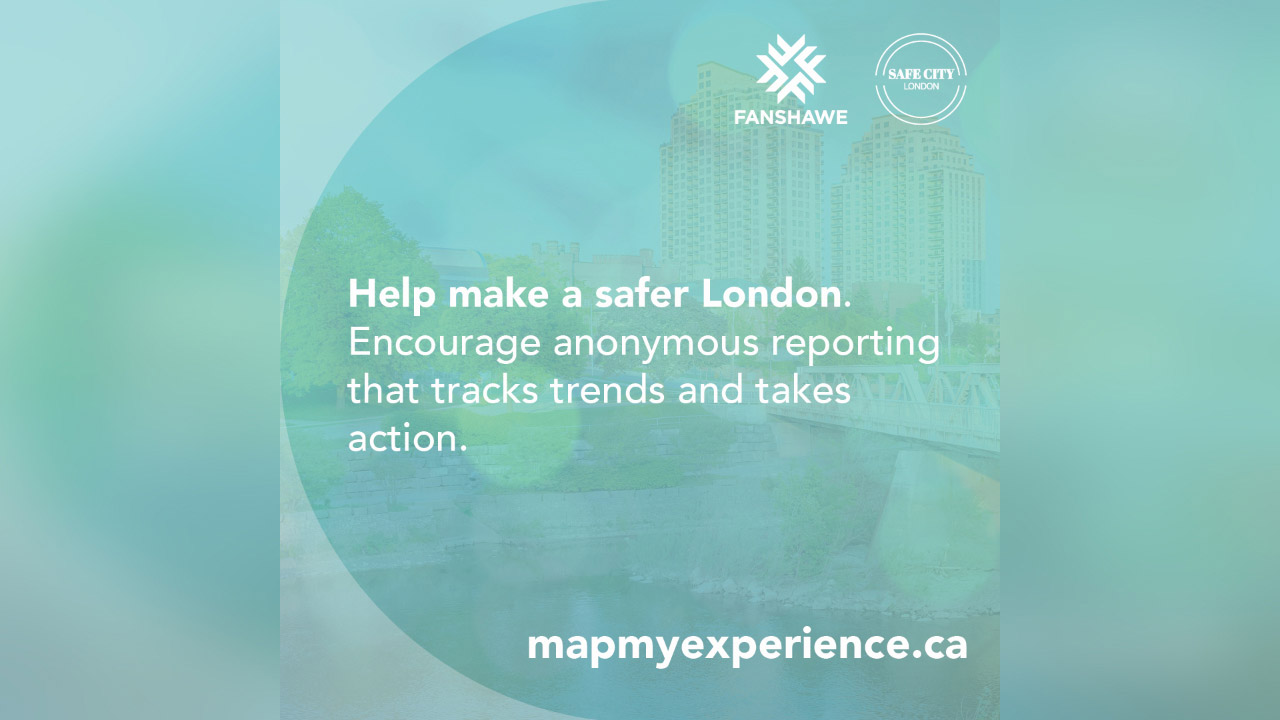Fanshawe joins efforts to help gender-based violence survivors heal
 CREDIT: FANSHAWE COLLEGE
CREDIT: FANSHAWE COLLEGE"You can influence change and those changes are going to be because of survivors saying, ‘This is what happened to me and something needs to be done about it.’"
Fanshawe has joined forces with Anova, joining Safe Cities London to make London safer place and help gender-based violence survivors heal from their traumas. Safe Cities London is an initiative to create a safer space for women, girls, and women-identifying people.
“Part of Safe Cities London was creating something called ‘Map My Experience’,” said Leah Marshall, Fanshawe’s sexual violence prevention advisor. “It is an opportunity for female-identifying people in London who have experienced gender-based violence to document what has happened to them without providing any of their identifying information.”
The map, located at mapmyexperience.ca, allows users to pinpoint the exact place within the city that they experienced gender- based violence. Users drop a pin and then will be asked various questions about their experience. This can include things like if you yourself experienced it, if you witnessed it, were told about it, any specific demographics that someone feels they may have been targeted, the surrounding intersections, how they might feel safer in this location/environment, and more. Nothing is required to be answered, it is all up to the person and what they feel comfortable sharing. It also acknowledges that the situation is never the survivor’s fault.
“We saw this as something that was really important to support, so we are actually really involved in the creation of this, how it’s rolled out, because we believe that survivors share their stories and find healing in many different ways. And for some folks, reporting to the police is not an option. Some groups of people have bad experiences or are not treated the same by enforcement, so there needs to be multiple options when it comes to healing and how we tell our stories.”
Marshall stressed that this tool isn’t just for recent incidents. Regardless of how long ago it happened, you can still share your experience.
“Sexual violence is a really isolating experience at times because we live in a world that really shames and blames survivors. As we work to change the culture where survivors are believed and supported, I believe this platform gives survivors an opportunity to say ‘this happened to me, this is where it happened, this is my feedback’ and it allows us to see that this is happening in our city. Data is important to be able to influence change because sexual violence is such an underreported crime, because of the way the legal system and society treats survivors.”
Marshall said this data allows them to look at prevention and support measures that specifically target the areas that are brought to light. And this way, they can try to help those students who might not walk through Marshall’s office doors to confide in her.

















